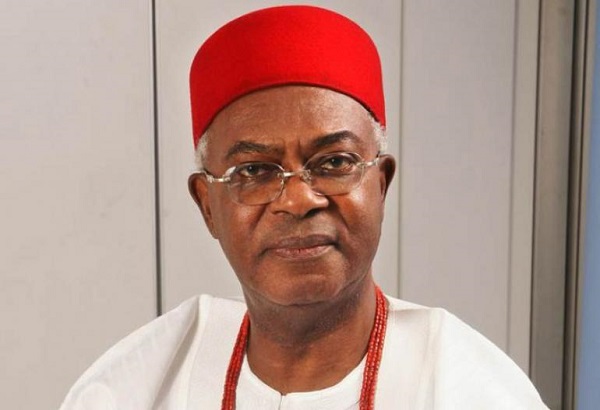
The Obi of Onitsha, His Royal Majesty Igwe Nnaemeka Achebe, has called on the Federal Government to revisit the national budgets for education and health in the country to emphasise their importance.
Achebe made the call today (June 28, 2022) in Abuja, at the first bi-annual Reproductive Maternal Newborn Child Adolescent and Elderly Health plus Nutrition (RMNCAEH+N) multi-stakeholder partnership coordination platform.
Recall that in 2020, in a bid to improve the well-being of women, children, adolescents and the elderly in Nigeria, the RMNCAEH+N was launched as a multi-stakeholder partnership coordination platform which harmonised the health interventions of the government and health partners to reduce wastage and channel funds to get the desired result to achieve universal healthcare coverage (UHC).
The platform brings together a wider cross-sector of partners and traditional leaders to address the gaps in achieving effective, overall coordination of RMNCAEH+N issues by harnessing the relative strengths of individual players to leverage resources, reduce duplication and induce speed towards maximised health outcomes.
The royal, who was represented by the Emir of Shonga, Dr. Haliru Yahaya, said it was wrong that the National Assembly commands a higher budget than both sectors, which are two critical elements for national development.
“The programme must flow down to the states and local government areas for implementation synergy, cooperation and partnership,” he said.
He stated that implementation – not documentation- was key to success.
“There must be a sense of urgency; the human capital document took four years to develop and the set targets cannot now be achieved within the set time frame, due to delays. Funding is also very critical for success,” he added.
The Sultan of Sokoto, His Eminence, Sa’ad Abubakar III, called on the government and its partners should remain committed to improving the health and well-being of Nigerians, especially vulnerable populations.
The royal, who was represented by the chairman of the Northern Traditional Leaders Committee on Primary Health Care Delivery (NTLC) and Emir of Argungu, Alhaji Samaila Mera, pledged the continuous support of traditional and religious leaders towards the achievement of UHC in the country.
The Minister of State for Health, Sen. Adeleke Mamora said that as part of the RMNCAEH+N commitments, the government was working to ensure the availability of family planning commodities and services by launching the FP2030 commitment.
Mamora, who was represented by the director, family health department, FMOH, Dr. Salma Kolo, said it aimed to increase domestic funding and sustainable financing through earmarking of one per cent health budgets at Federal and state levels.
“We are optimistic that Nigeria will attain her vision with a strategy that allows eligible citizens, including adolescents, young people and vulnerable populations, to make informed choices and get equitable, affordable access to quality FP and participation in national development. This is the goal of the FP2030 commitment,” he explained.
The director-general of the Nigeria Governors’ Forum, Mr. Asishana Okauru, said that the forum has been a part of interventions of the ministry which, he said, is central to governance of health in the country.
According to Okauru, we will continue to emphasise issues coming out of the health ministry. We will dedicate one or two of our officers to ensure we make this a priority for our governors. Also, we guarantee our commitment, especially at the sub-national level.
The country representative of the World Health Organisation (WHO), Dr Walter Kazadi Mulombo, assured of the WHO’s continual support to the country, to ensure that, together, the country meets the target of UHC and overcomes through collaboration.
Mulombo, who was represented by the medical officer, Maternal and Child Health UHC, Life Course Chaster, WHO, Dr. Martin Chabi, said that the meeting was a great opportunity to [work towards] improving the health of women, children and adolescents via transformative multi-sectoral action.
According to him, this will also accelerate coverage of interventions, reduce gender and equity gaps and improve the quality of services.
Speaking, the national coordinator of Rotary International’s Maternal and Child Health Project in Nigeria, Prof Emmanuel Lufadeju, said that Rotary is supporting the FMoH on RMNCAEH+N, which started about two years ago.
Lufadeju said that RMNCAEH+N was a coordinating platform for stakeholders to have coordination and concentration activities and efforts, to prevent duplicity.

